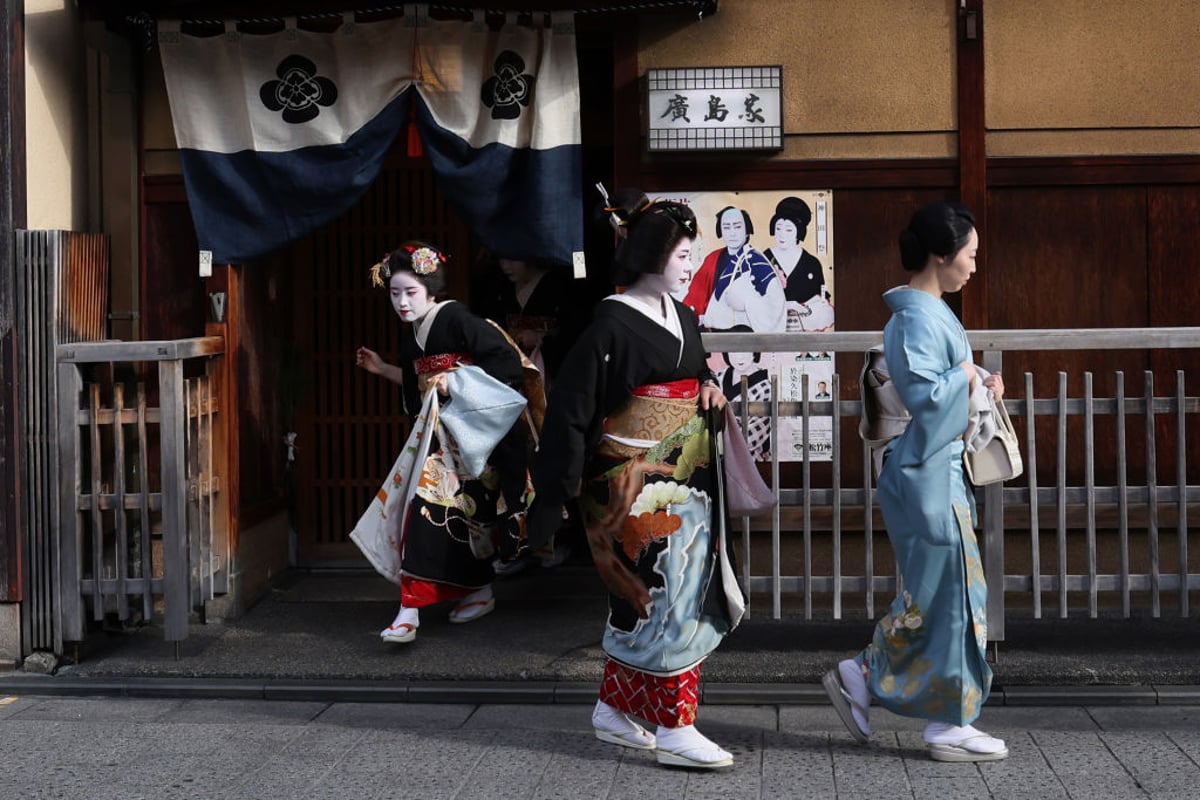Copyright scotsman

Sorry for the radio silence for the past two weeks, I'm just back after a long-planned holiday to Japan. Sadly, I didn't manage to snag Kabuki tickets - who knew a four hour theatre show which only allows male actors would be the hottest ticket in town - but I did manage to catch a dance performance at an art museum by two of Kyoto's current geisha. I've been fascinated by the concept of geisha culture as an art form since I first read Memoirs of a Geisha some 25 years ago. I am, of course, aware that book has problems of its own. The author, Arthur Golden, heavily based his fictionalised account on a series of interviews with retired, well-known geisha Mineko Iwasaki, apparently under the promise that she could remain anonymous, however, he thanked her in the book's credits. Something of a stooshie ensued, a court case was set and Ms Iwasaki subsequently wrote her own version of her memoirs, differing strongly from Golden's version, which dwelled on the seedier side of geisha society, including the historic practice of "mizuage", when a new geisha's virginity was sold to the highest bidder. Outside of this practice, which was outlawed halfway through the last century, while high-class geisha were generally not regarded as sex workers throughout history, there is no doubt that their main purpose was to entertain - and tantalise - men. Now, while some geisha houses have started holding tourist-orientated events to bring in extra money, in others, traditional time spent with geisha is still by invitation only for mainly Japanese businessmen who can afford it: performing the arts, of course, but still. Japan is very keen to ensure that modern geisha are regarded as artists, which they are. The dance forms they learn take years of study and even experienced geisha continue to hone their skills at daily classes. Other cultural activities such as traditional tea ceremonies are also incredibly intricate. Trainee geisha, known as maiko, are not allowed romantic relationships, or mobile phones, essentially cutting them off from the modern world. Yet, apparently applications for young girls to train as geisha are on the rise, something that shocked my teenage daughter, whose reaction was "hell no". While the young geisha are undoubtedly incredibly skilled at what they do, I have to say, I'm with her on this one. Killing a Mockingbird slowly Back in Scotland, I was sad to have missed Aaron Sorkin's To Kill A Mockingbird, which was on at Edinburgh's Festival Theatre while I was away. I have a love-hate relationship with this book, having been forced to read it more than 40 times during a long-term staff absence at school which saw my class babysat by whatever supply teacher was free for the best part of a year. I had hoped that this adaptation, which I have heard only good things about, would get me back on the Harper Lee horse. Alan Cumming on Celebrity Traitors? It's been a bit of a week for Alan Cumming news, with the announcement of the Scottish actor's new LGBTQ+ festival in Pitlochry, as well as his admission that he would quite like to appear on the next series of Celebrity Traitors if one is filmed. He also told me that he knows who wins the current series, having turned up at Ardross Castle to film the next series of the US version, of which he is the host, as the celebrity series was ending. I had to beg him not to spill the beans.



